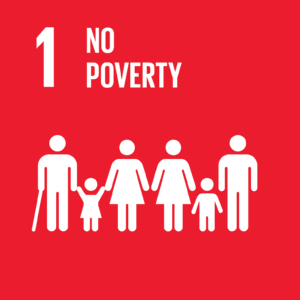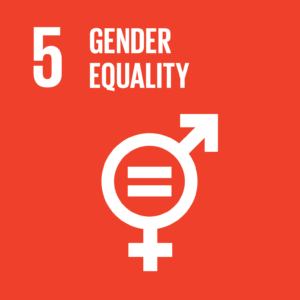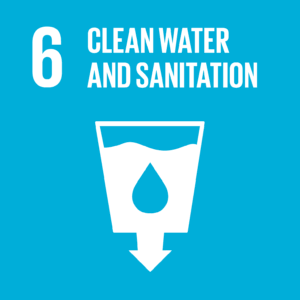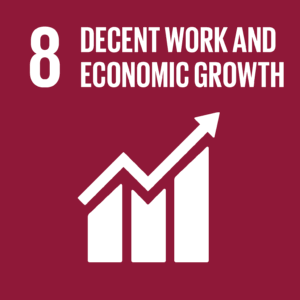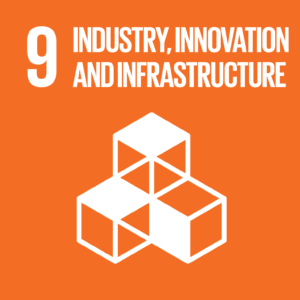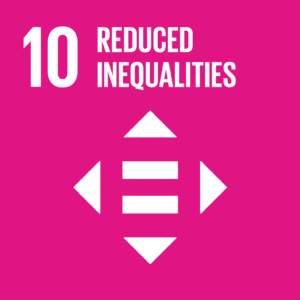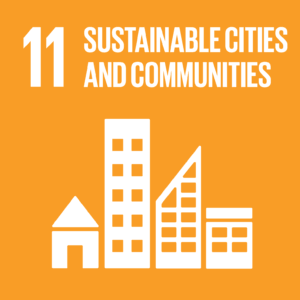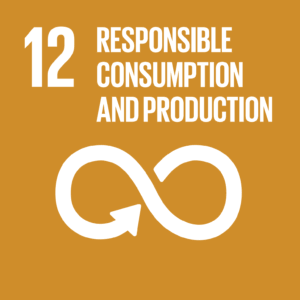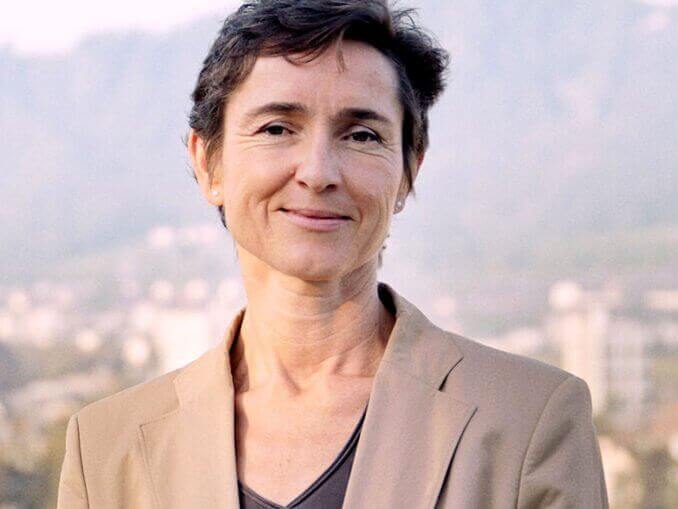
Sustainability has moved to the top of the global agenda. The associated training and further education has not yet been available. Most countries, including Switzerland, and companies have committed to international agreements and standards1. But commitments and setting ambitious targets are not enough to successfully move toward 2030, net zero, and a sustainable economy. Companies must integrate sustainability into their corporate strategy and culture and train their employees accordingly.
Business Sustainability Today spoke to Judith Walls, Professor and Chair of Sustainability Management at the University of St. Gallen, about sustainability training2, its importance, best practice and the anchoring of sustainability at various company levels.
This article on continuing education and sustainability is supported by

Business Sustainability Today:
Why is corporate sustainability education and training important?Judith Walls:
Sustainability is a holistic concept – one that needs to be embedded in all areas of a company. If a company takes the issue of sustainability seriously, it cannot limit its efforts to just one part of the company and leave the others out.In my research, I found that awareness of sustainability is present, but expertise is lacking. Especially at the level of CEOs and board members, expertise in environmental sustainability is very low. It is somewhat higher for social issues, but very low especially for environmental issues. There is an urgent need for action here.
Business Sustainability Today:
How do the responsibilities regarding training for more sustainability differ at the various levels of a company when it comes to further training? Who needs to be trained?I consider the training of people at all levels of the company to be crucial. The training of employees depends on the respective work area. Some need technical knowledge about sustainable supply chains, others about sustainable product innovations or how to market sustainable solutions. As mentioned above, training and further education are also important at management level.
The Board of Directors is responsible for monitoring and supervising a company. In terms of sustainability, its role is to uphold due diligence as well as to set the strategic guidelines so that a company makes the right decisions. In listed companies, the Board of Directors is held accountable by the shareholders. Shareholders are increasingly demanding information on environmental, social and governance (ESG) issues. A Swiss board member once told me that board chairs often have an opinion on sustainability issues even though they have little knowledge about them.
They are undecided about what works and what doesn’t, what guidelines are appropriate, how to assess sustainability, and what targets or indicators to set. Education on all of these topics is critical for board members. Training for board members should focus on asking the right questions so that leaders can take both an advisory and oversight role.
Corporate executives need to understand how sustainability can impact strategy and decision making. It is important to have a medium- to long-term strategy – that is, not how sustainability will affect the company next year or what the immediate impact will be for the company, but its benefits over the long term. Eight years remain until 2030 to achieve the Sustainable Development Goals (SDGs). CEOs need to acquire knowledge that supports them in implementing ambitious goals and strategies.
Many companies today have a Chief Sustainability Officer (CSO) or a comparable person who is responsible for sustainability across departments. They are responsible for developing sustainability strategies that are approved by the Executive Board. At the same time, they are motivators, stimulators, agitators, coordinators, and often translators and “shapers.” They design sustainability within the company and further training in such a way that it is tailored to different internal and external target groups. In addition, they are responsible for reporting and work with various departments to implement sustainability strategies and achieve set goals. This is why the training of CSOs focuses on qualifying them as agitators, or more precisely as change agents.
Business Sustainability Today:
In Switzerland, there are also many small and medium-sized enterprises (SMEs) that often do not have their own sustainability department. What kind of training or further education and sustainability training does an SME need?Judith Walls:
In SMEs, the separation of roles mentioned above may not take place. SMEs sometimes lack the financial and human resources to create a separate position for sustainability. Depending on the sector and the relevance of sustainability, the issue must be embedded in numerous jobs, and the CEOs themselves become change agents or technical experts. Supply chain management and sales require a high level of general knowledge and training in climate change, the circular economy and sustainability. Ideally, all employees should be given a basic understanding of these issues, as all companies, regardless of size, need a variety of people knowledgeable about sustainability, including CEOs.Business Sustainability Today:
What advice do you have for companies in view of the many different important sustainability issues and the wealth of information, much of which is new and subject to change? What does this mean for training and further education?Judith Walls:
There are indeed a whole host of environmental and social issues, including the 17 SDGs with 169 sub-goals. This can be overwhelming for organizations. In my view, it makes only limited sense to focus on all 17 SDGs at once. A pragmatic approach to identifying the subjects relevant to a company is offered by a materiality analysis. This process identifies those issues that stakeholders consider important and those that will impact the company in the coming years.A good guide is provided by the concept of planetary carrying capacity limits. It looks at nine ecological dimensions important to the Earth, where overstepping defined limits could have serious consequences for humanity. I like to explain this with the image of a multi-tiered wedding cake. The top tier represents our global economy integrated into a larger social system – the second tier. This includes all social SDGs and continuing education. All of this is in turn embedded in the third stage – our natural environment. We need to address issues such as biodiversity loss, climate change, land use, and pollutants in water. If we don’t, nature can’t recover fast enough, and we create what’s called a positive feedback loop: we make the situation worse by not addressing the root cause of the problem. My rule of thumb is that no matter what companies focus on, the natural environment cannot be ignored.
Business Sustainability Today:
Should companies, along with sustainability education or educational training, focus on mitigating all their negative impacts before trying to achieve a net positive impact?Judith Walls:
From a pragmatic perspective, companies tend to deal with both at the same time. It is easier to achieve positive impacts on a small scale than to eliminate all negative impacts. Some negative impacts, such as pollution from certain important chemicals or fertilizers used to grow food, cannot be so easily eliminated. A cynic might say that this is a form of greenwashing: positive impact where possible, but no change where it matters. An idealist might see this as paradoxical thinking.In my opinion, solving fundamental problems should come first. These are linked to business risks and can include physical risks such as floods or storms, or operational risks such as supply chain disruptions. In both cases, financial risks and often reputational risks are involved. There is also the question of whether investors will continue to support companies or whether insurance will cover expensive assets if a company does not move toward “zero harm” to the natural and social environment. Not only the demands, but also the regulatory framework are subject to change: the EU alone has introduced around 170 new regulations since 2018. Companies are challenged to change their business models and get to the root of the problem.
Business Sustainability Today:
How often do you think companies should update their materiality analysis? As regular as training and further education on sustainability?Judith Walls:
The world is changing at a rapid pace, so companies should regularly update their materiality analyses. Covid-19, social movements such as Black Lives Matter, Occupy Wall Street, the Me-Too movement or Fridays for Future are leading to structural upheavals and influencing the way companies work. In the United States, for example, there has been a significant shift in the way companies deal with diversity and inclusion. Changes such as climate change and biodiversity loss must be addressed as long-term problems because they are challenges that cannot be reversed once a tipping point has been passed.Business Sustainability Today:
What might best practice sustainability training look like for or within a company? What is the first step in such further training?Judith Walls:
First, companies need to set a clear objective for training. Employees, for example, should receive training to gain a comprehensive understanding of sustainability issues. By training their employees on sustainability, companies are empowering them to be part of the solution.Depending on a company’s industry, sector-specific training may also be required. Companies should take a pragmatic approach to understanding what sustainability means for the business and the sector.
Three aspects are relevant to education and training in sustainability. First, there needs to be a heightened sense of urgency. Secondly, it is important to inspire hope and to point out that solutions are available and that we can develop more. Third, it is important to focus on the key issues and make an impact there.
Business Sustainability Today:
How do you yourself organize the training and further education courses at the University of St. Gallen?With us, there are many different opportunities to further your education on the topic of sustainability, both in our regular degree programs and in our executive programs. An exciting new development is a continuing education course entitled “Agile Sustainability Management for Businesses,” designed in conjunction with the Competence Center for Social Innovation and my own Chair of Sustainability Management at the Institute for Business and the Environment, which will launch in March.
In this program, we will first create a basis so that all participants are familiar with the topic of sustainability. We will then focus on how companies can generate value and have a positive impact on the environment and society. One focus topic will be the circular economy and the associated potential for innovation. Subsequently, we will dedicate ourselves to new business ideas or prototypes for a project, based on design thinking. Other relevant topics are governance and collaboration, and we also attach great importance to both networking and further training in the form of peer-to-peer learning. Collaboration with partners or companies from the value chain is incredibly important to address problems that can only be solved in a larger context. Finally, the identified solutions are analyzed for their impact, followed by a reflection on what it means to be a change agent.
Business Sustainability Today:
Is the demand for training or further education in the area of sustainability high? How has demand changed?Judith Walls:
In the past three years since I started working in Switzerland, I have experienced a huge change, both in terms of attitudes and opinions on sustainability. This is confirmed by the increased demand for training – a higher demand than we can satisfy at the moment. We even get requests from primary and secondary schools. Since we cannot serve all requests, we also have to set priorities. This statement applies not only to Switzerland, but also to other countries, as my colleagues abroad confirm.Business Sustainability Today:
What makes sustainability training successful?Judith Walls:
In my opinion, sustainability training will only be a success if there is a real commitment from corporate management. Furthermore, it is important to implement what has been learned in the company. Companies need one or more trailblazers to drive it all. If they start doing that and there has been a commitment from the top and a change in strategy, it has far-reaching implications.Business Sustainability Today:
Building sustainability capacity, further education or training may seem like a “nice-to-have” to a manager reading this interview. But not as a crucial prerequisite for success in 2022 and beyond. How would you argue to change that opinion?Judith Walls:
I would say that education and training on sustainability are not a nice-to-have, but a must. Especially for people in key positions. Sustainability in general was not considered mandatory in the past, but this is no longer the case. 194 countries have signed up to the Paris Agreement; companies around the world are committing to Science-Based Targets. But as I have already mentioned, companies do not yet know how to achieve these goals. Committing to something you don’t yet know how to do must be pretty scary, because you’ll be held accountable, even if it’s voluntary. This means that companies need to build capacity: either through on-the-job training or through formal training. This is the only option for companies to survive and retain their license to operate. Apart from that, sustainability training is a great way to stay competitive in the market and be a pioneer.Business Sustainability Today:
What are the biggest obstacles that need to be overcome to ensure a global transition to a sustainable economy?Judith Walls:
Every year, the World Economic Forum conducts a survey to identify the biggest risks facing businesses. As of 2018, the top five risks are all environmental risks. New additions include infectious diseases in response to Covid-19. For me, this is a sign that the issue of sustainability is indeed at the top of the agenda – both politically and for companies themselves. In my opinion, the biggest obstacles to achieving a sustainable economy are actually doing something, and doing something meaningful with impact. That is why further training is needed.True transformative action requires not only the political will of heads of state and government, but also that of CEOs. We therefore need strong managers. I firmly believe that one person can make a big difference. Of course, we need social movements and activism among the population to put pressure on companies and organizations. But also people who have the opportunity to really make a difference within their organizations – who stand up with conviction because they know that they are responsible for it.
1 United Nations: The Paris Agreement, 2 Introductory article: Education and training on sustainability for business: an essential transformation driver

